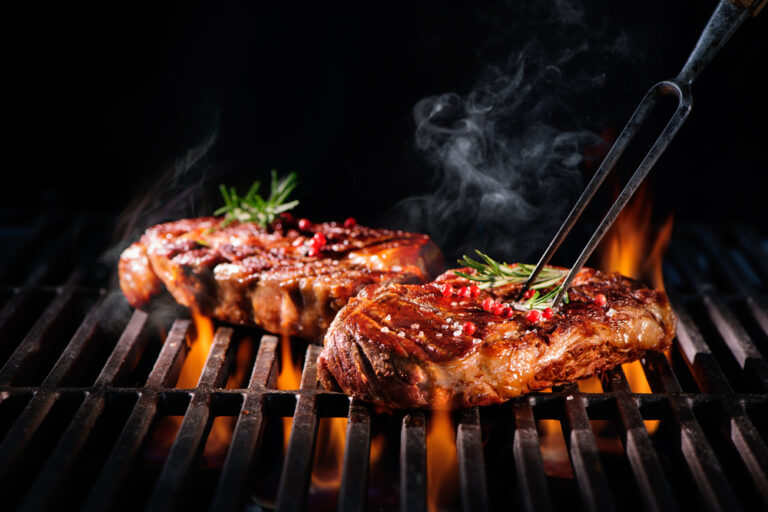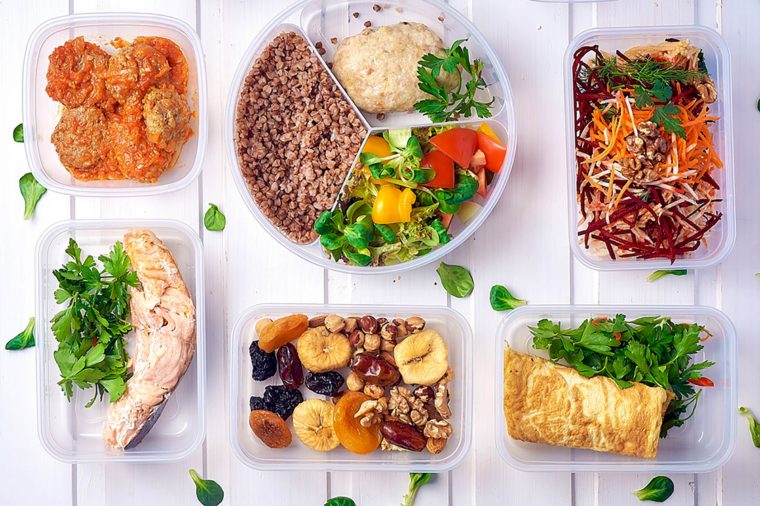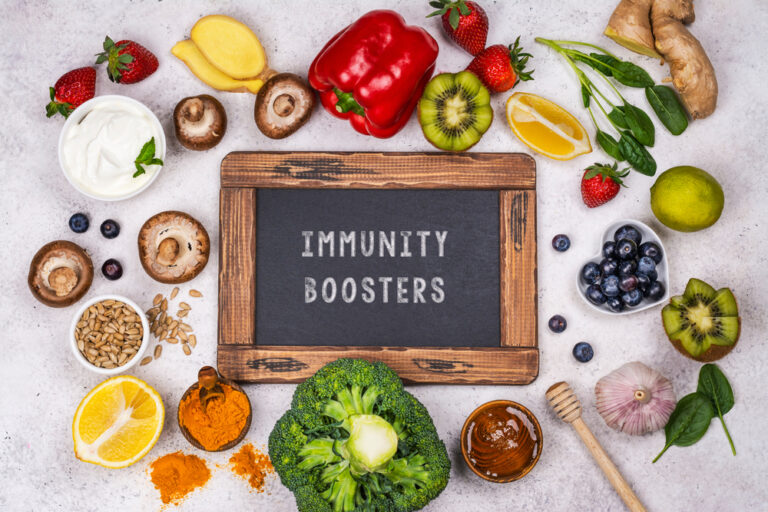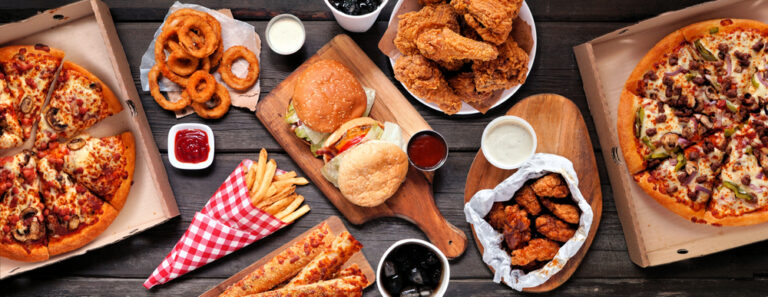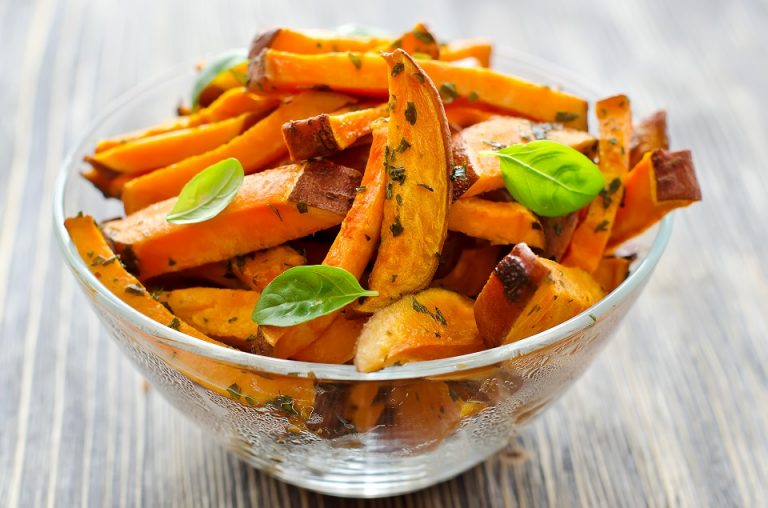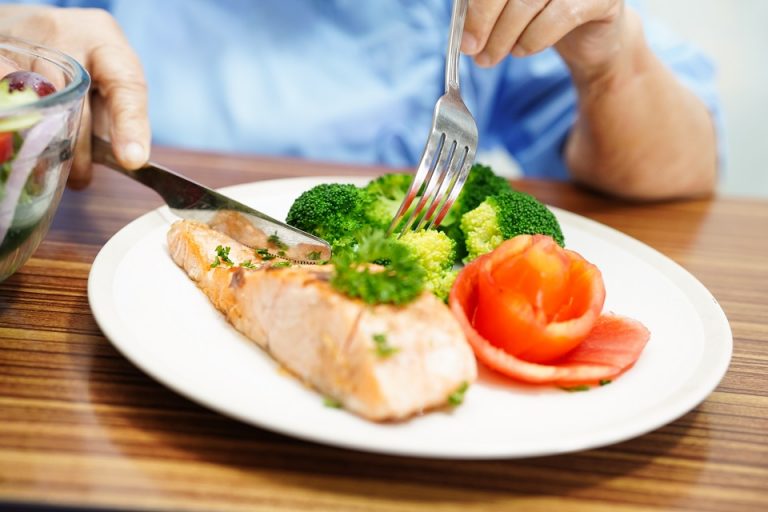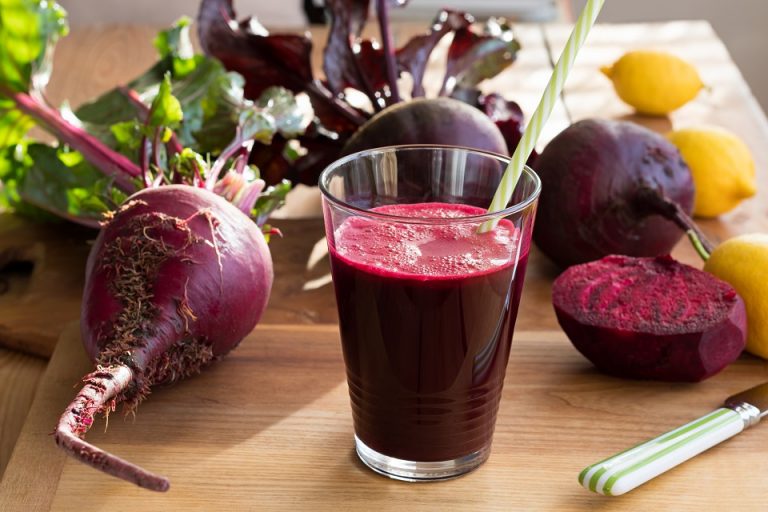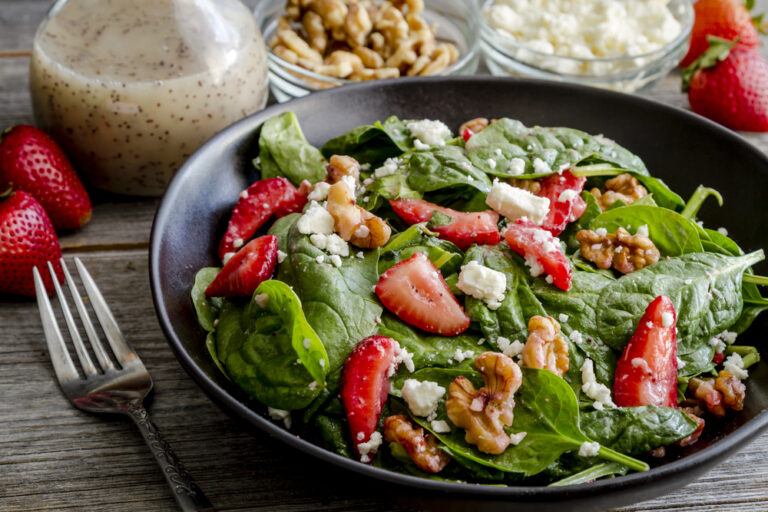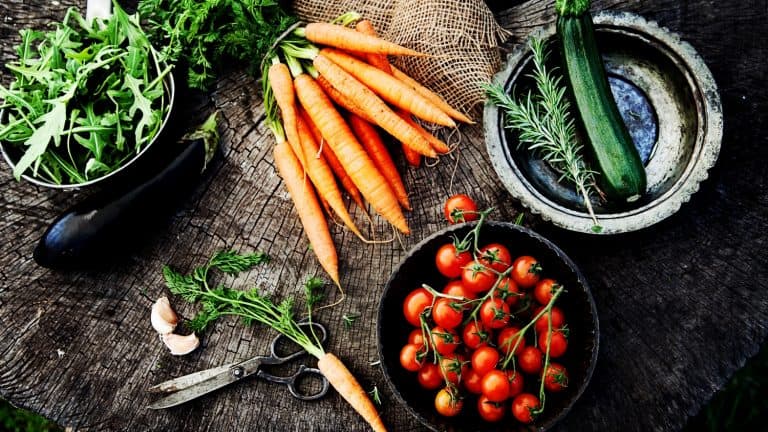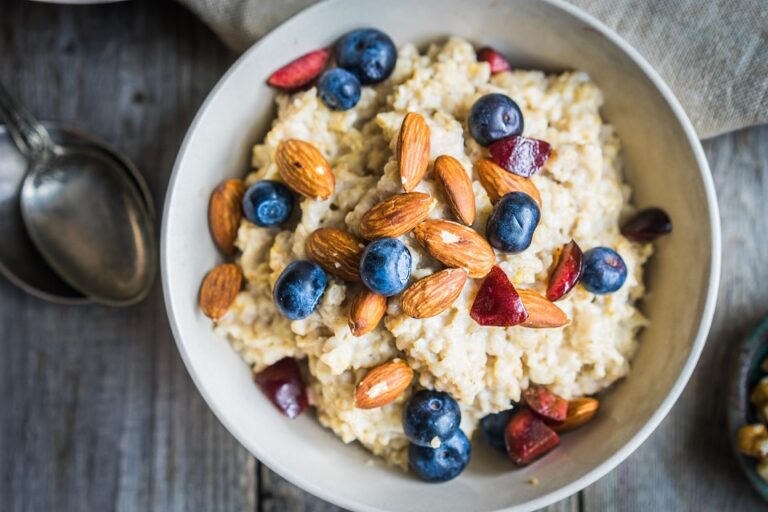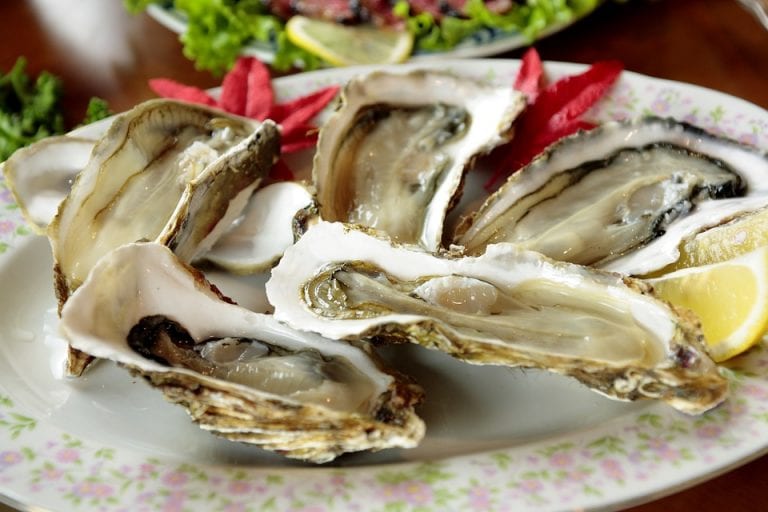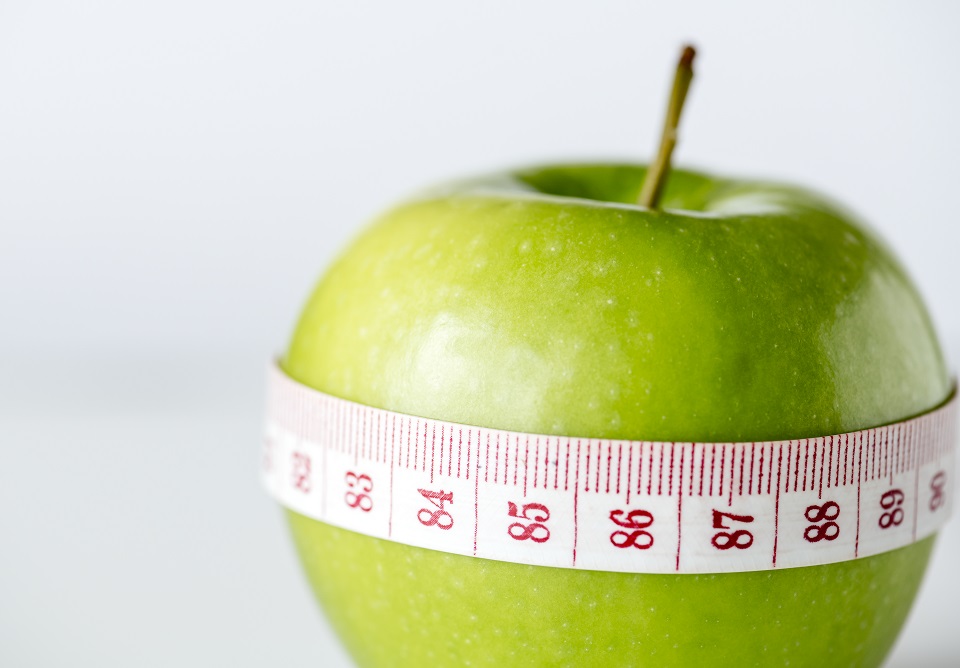
Overthinking leads to negative thoughts and this can really affect your weight loss plan. Maybe you didn’t found the right nutritionist for you or maybe you’ve started your weight loss journey all by yourself. No matter what kind of challenges or difficulties you go through right now, we promise that these weight loss mantras will help you achieve your goals!
1. ’90 Percent Fuel, 10 Percent Fun’
“This is a great one for helping people keep a good perspective on healthy eating,” shares Frances Largeman-Roth, RDN, nutrition expert and author of Eating in Color. “You don’t need to count every calorie. Just try to keep a mental tally of what you’ve eaten in a day, week, etc. Kale, quinoa, almonds, and all the rest of the healthy stuff should be the crux of what you’re eating—but there’s still a little room for champagne and chocolate!”
2. ‘Eat to Nourish Your Cells’
“We often talk about eating in terms of weight loss, and we forget what eating actually does,” emphasizes Lisa Hayim, registered dietitian and founder of The Well Necessities. “But when we visualize eating to nourish our cells, we begin to see the true purpose of food, and can’t help but want to honor its ability to thrive.”
3. ‘Aim for Progress Not Perfection’
There is no such thing as a perfect diet,” The Nutrition Twins, Lyssie Lakatos, RDN, CDN, CFT and Tammy Lakatos Shames, RDN, CDN, CFT, and authors of The Nutrition Twins’ Veggie Cure remind us. “Keep making positive changes in your diet and you’ll reap the rewards. When you stray from a healthy eating plan, instead of throwing in the towel on healthy eating altogether, simply acknowledge that you wandered off track and simply wander back on.”
4. ‘Everything in Moderation. There Aren’t Bad Foods, Just Better Foods!’
“There are many factors that go into everything we eat, each time we eat: Freshness, nutrition, seasonality, culture, comfort, taste, appearance…” says Rebecca Lewis, RD for HelloFresh, a leading healthy meal kit delivery service. “That said, denying yourself something that fulfills other needs ends up creating an unhealthy relationship with food. Denial is not a sustainable ‘diet.’ You can and should indulge, just do so responsibly.”
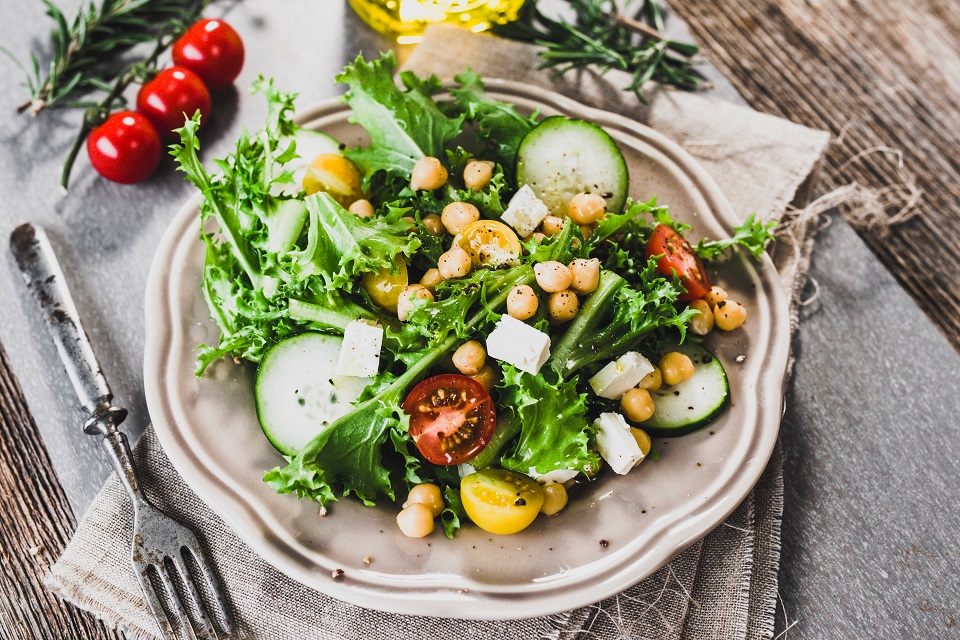
5. ‘Delicious Can Mean Nutritious’
“Healthy doesn’t mean tasteless,” stresses Mitzi Dulan, RD, Author of The Pinterest Diet: How to Pin Your Way Thin and team nutritionist for the Kansas City Royals. “Learn how to make some super simple meals that take minutes, taste fabulous, and are good for you!”
6. ‘Going on a Diet Means Going off a Diet’
“Don’t diet. Resist the urge to be ‘on a diet’ with weight loss as the expected payoff. ‘On a diet’ means that ‘off a diet’ is not far behind,” says Mary Hartley, RD, a consulting nutritionist from Providence, Rhode Island. “Your routine should be something you can—and will—live with indefinitely. Expect to act healthy for its own sake, regardless of your weight.”
7. ‘Change How You Eat Before You Change What You Eat’
“Studies show that people are more satisfied and eat less when they eat mindfully and without distractions such as the TV or cell phone,” shares Sarah-Jane Bedwell, RD, LDN, a Nashville-based nutritionist and author of Schedule Me Skinny: Plan to Lose Weight and Keep It Off in Just 30 Minutes a Week.
8. ‘Snack Like a Two-year-old!’
“Snacks are necessary throughout the day because they provide continuous energy and fuel. However, there are a lot of misconceptions about snacking,” says Lon Ben-Asher, RDN, LDN, Nutrition Educator at Pritikin Longevity Center + Spa. “If you choose to snack on those so-called ‘healthy’ 100-calorie snacks, you are doing yourself a disservice.”

9. ‘Learn to Love the Process’
“Lifestyle change should not be short-term,” advises nutritionist Kayleen St. John, RD at Natural Gourmet Institute, a health-supportive cooking school in New York City. “If you’re changing your life, you need to find ways to make it enjoyable so that you find happiness in your everyday. Hate kale? Don’t eat it! Hate spinning? Don’t do it! There is no one-size-fits-all meal or exercise plan that makes everyone happy. Find foods and activities that you genuinely enjoy and learn to love the process.”
10. ‘I Am Breathing In, I Am Breathing Out’
“This one might sound a bit silly, but works wonders. Food causes all sorts of emotions to arise, and many of the situations in which we eat (family dinners, holidays) trigger binging or overeating,” offers Hayim. “The second you begin to feel hot, nervous, or anxious, I recommend removing yourself from the situation for a minute, close your eyes, breathe deeply, and repeat this mantra at least five times. When we slow down our breathing, we stimulate the parasympathetic nervous system, which is responsible for calming us down.”
11. ‘Scales Are for Fish’
“I prefer my clients to keep count of their weight loss in terms of their self-confidence and the way clothing can fit,” explains Hayim. “Scales can be misleading and checking in too frequently can easily become obsessive, leading to feelings of negativity.”
12. ‘A Treat Doesn’t Have to Be Something That You Eat’
“When you ‘reward’ yourself, it doesn’t always have to be with food. A lot of my clients like to relax at the end of the day and treat themselves with food or a glass of wine, whereas treating yourself to an hour of reading good book or taking a relaxing bath are healthier ways to spoil yourself,” offers Erin Palinski-Wade, RD, CDE, author of Belly Fat Diet For Dummies.

13. ‘Don’t Love It? Don’t Eat It’
“Don’t waste your calories on foods you don’t love,” comments Dulan. “For example, if you try a dessert that isn’t very good, stop eating it! This works great when you are going to parties or out to eat at a restaurant. When you get food and don’t love it, don’t feel like you need to eat it all.”
14. ‘Color Your Plate’
“It is important to have a balance of plant-based foods consisting of fruits, vegetables, and unrefined carbohydrates. The more colors and the deeper the colors, the more vitamins and minerals and antioxidant phytonutrients a food possesses—which is important in disease prevention and health promotion.”
15. ‘Cook at Home, Take Control of Your Health’
“More than 50 percent of the average American’s food budget is spent on foods prepared outside the home,” says Lewis. “We have a heavy reliance on foods that are higher in calories, fats, sugars, and sodium. On the flip side, when foods are cooked at home, they are inherently healthier because you get to decide every ingredient that goes into what you cook.”
16. ‘Work on Your Spiritual Growth and Weight Loss Will Follow’
“Instead of measuring progress in terms of pounds gained or loss, look for signs that mark your emotional growth,” recommends Hartley. “Do you nourish your soul, cope well with stress, persevere through setbacks, and love your body and yourself? Emotional health usually produces physical health.”
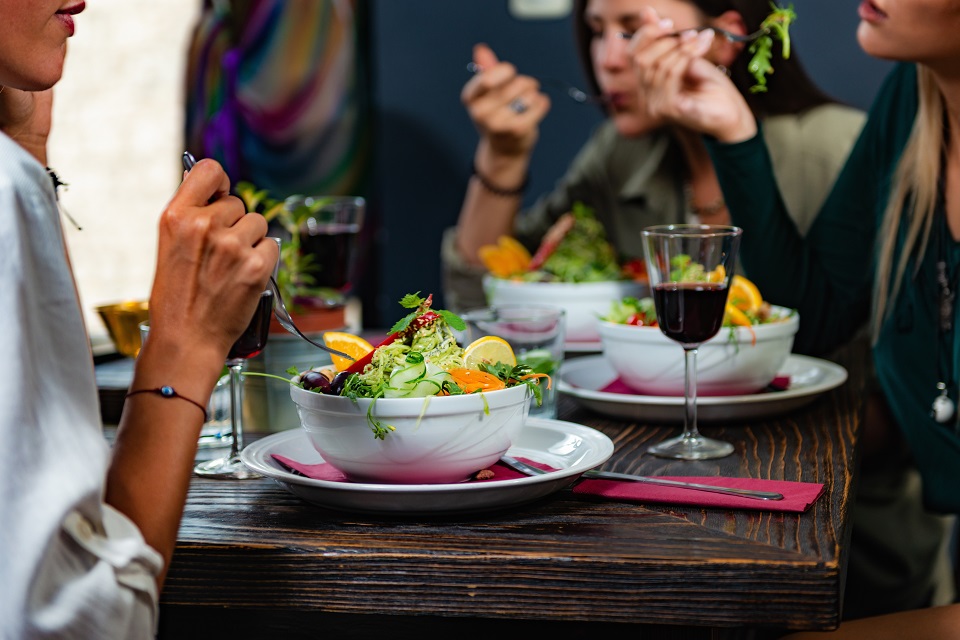
17. ‘Don’t Eat Unless You Are Truly Hungry’
“Learn to monitor your hunger-fullness level,” advises Hartley. “Eat when you are one-fourth full and stop when you are three-fourths full. Adjust the amount and type of food you eat so that hunger occurs every five hours of so.”
18. ‘Every Day is a Brand New Chance to Start Taking Care of Yourself’
“This is one of my favorite mantras,” offers Largeman-Roth. “Lots of people get down on themselves because they went crazy and ate and drank too much on their birthday, vacation, etc. I really try to encourage folks to look at every day as a new chance to start fresh and make the choices you want to make.”
19. ‘Looking and Feeling Amazing is the Best Revenge’
When all else fails, this is one heck of a mantra to remember when you don’t feel like holding that plank any longer. “After a bad breakup or a job loss, it can be so tough to motivate,” admits Largeman-Roth. “But if you look at your health and fitness as a project and attack it that way, you can find the motivation to move past the pain and disappointment of a failed relationship or career setback. I personally have used this one several times in my life!”
20. ‘Mistakes Are Proof That You’re Trying’
“To be successful in anything, you can’t let perfection be the enemy of good,” says St. John. “Changing your lifestyle is no exception. Don’t expect to eat ‘perfectly’ or hit your exercise goals everyday because it likely won’t happen. When you slip up and make a mistake, all that means is that you’re trying, which is more than you can say before you began your journey. Mistakes aren’t mistakes; they’re stepping stones.”


